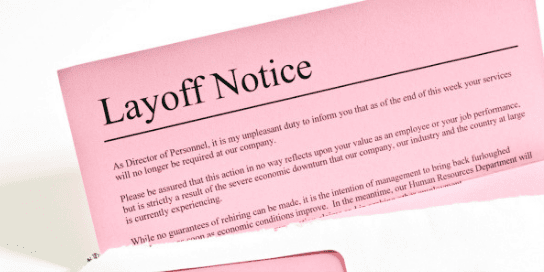Definition of “it doesn’t make sense financially”: “Choosing against conventional financial wisdom, or for a financial outcome that will probably (based on traditional financial education, history, probabilities, calculations, or simulations) leave you with LESS money.”
Like what? – Some of the classics..
- Paying down a very low mortgage rate versus investing the money when you have a long time horizon.
- Buying a larger home, in a more expensive area, better school district, or something more suited to your wants than your needs.
- Starting a business using your retirement funds and taking a tax hit: a 10% penalty (under age 59, and taxes at ordinary income.
- Buying a vacation home versus renting when you’d be investing the difference between the two.
- Taking vacations with your kids when they are young and in the house while your income is low, but growing versus saving for retirement.
And, the list goes on.
Let’s take an example (from a friend who inspired the post):
“Eric, I’m torn buddy… I know I need to save for my retirement, but I’d rather pay down my mortgage faster.
I know it doesn’t make sense financially, but I’m worried about my ALS. Maybe I only have 10 years to live, and leaving the girls without a home in ten years scares me.
I don’t qualify for life insurance outside of my small group benefit. What if the market tanks? Plus, Julie can’t get to my retirement tax-free when she needs the money…”
In a frustrated, audibly holding back tears tone with a little shame and guilt.
So we agreed to run numbers:
More money in the future, less taxes today (Probabilistically), “Of course, I know I will probably come out ahead if I invest the funds on a ten-year basis, historically, versus paying off the home.” “But, doctors said I shouldn’t be alive 10-years ago.”
- Let’s say he earns 8% versus 2% on the after-tax cost of the mortgage, or a 6% spread, investing versus paying down the mortgage.
- Calm down, yes, there could be a negative rate of return over the next ten-years, let’s use averages for now, and say he pays another $1.5k to his mortgage every month, for ten years.
- So, the spread of $1.5k invested monthly, earning 6% versus paying down the mortgage is around $246k.
More taxes (long-term), There’s a double whammy here. One, he is also accelerating a lost interest deduction, one of the only things he has to itemize on his taxes as a high-income W2 earner above the standard deduction. Two, he is also losing the deduction with his 401(k) investment as well.
- Mortgage interest deduction: He bought a $750k home with 20% down. So, a $600k mortgage. Using an amortization calculator at a 30-year mortgage at 2.75% that’s $145k in interest over ten years, but he is dropping his total interest over ten years to $118k. $27k less. That looks great, right?
- Except he is losing about 24 cents on the dollar in deductions in the 24% marginal tax bracket. So, he is “losing” another $6,500 over ten years in tax deductions.
- 401(k) investment: $1,500 a month, equals about $18,000 a year. That’s $180,000 over ten years in lost tax deductions at the 24% marginal tax bracket, or about $43,000.
$300k over ten years = $246,000 spread opportunity cost of investing + $6,500 lost mortgage deduction interest + $43,000 in lost 401(k) tax shield.
So, hypothetically, probabilistically, and with a lot of assumptions, as listed, it doesn’t make sense to the tune of $300,000 less, over ten years.
$300,000 less off, over 10-years, so is he crazy?
If you’re screaming yes, don’t do it, hang on a second.
Let me ask you a few questions:
- What is a good night of sleep worth to you?
- What’s a great marriage worth?
- How much would you pay for emotional stability throughout the day, or a sense of peace or calm?
- How about sticking to a plan versus doing something you are very uncomfortable with, and want to bail, or question?
Most good “it doesn’t make financial sense decisions” should: Give you more time to focus on the things you value
- Reduce risk
- Build your reputation or your legacy
- Improve your health & mental/emotional well being
- Increase happiness
- Build, repair, or enhance relationships
It’s not our job or place to tell him if any of those are worth more than $300k.
It’s our job to make sure he is achieving his goals, and understands the trade-offs.
First, remember his goal: Taking care of his girls. If this relieves stress, perhaps he lives longer for his girls too.
What is the “it doesn’t make sense financially”…Danger Zone?
Breaking all conventional wisdom, while it sounds sexy and provocative is usually not a good thing.
Some things to think about:
- Keeping up with the Jones’: is this purchase for me, or to look good for someone else?
- Ending up with less: do I keep breaking the rules, and ending up with less money, and none of the things I felt I would gain?
Spending money on things you think will make you happy without thinking about why you need them is usually a recipe for regret. Breaking the rules without discipline doesn’t always end well either.
Danger Zone Example
When I worked at a private bank there was a client who wanted to start a silk screening business. Well, his wife wanted to. With no prior experience. No customers. No ability to see any reason for failure. No reason to talk it through with us. They cashed out $50k+ of their IRA for equipment and a business plan. High-earners, not over the age 59.5, so a 10% penalty, and heavy taxes at ordinary income.
They lost it all.
One year later, they need another $100k to buy his mother-in-law’s home as an investment to house all the silk screening machines while fixing it up…in rural Nebraska.
Do I even need to tell you what happened next?
While some of personal finance is an art versus a science. There is still objectively bad financial art. I’d define that as “spending recklessly without awareness or large upside”.
So, what are some practical steps for you when you reach a “it doesn’t make sense financially” impasse:
- Write on paper what you are hoping this accomplishes: What benefits are you getting for giving up more money?
- Calculate da number: Get the numbers first versus the alternative, if you can’t do this, please ask a competent fiduciary for help.
- Challenge assumptions: Assume your assumptions could change, or are wrong.
- Envision regrets: What is the worst I could feel for moving forward versus the alternative? Usually errors of omission can cause more regrets.
- Compromise: Can we do something, kinda, sorta, like it?
- Danger zone: How can I get really hurt in the short-term or long-term? Am I thinking it’s the end of the world or possibly a future fantasy?
Waking up in 10-years
Life is not black in white, and there are many things worth more than money. But if you don’t know what those are you might wake up in 10 years to a $300k mistake versus a conscious decision, you are still happy about.






